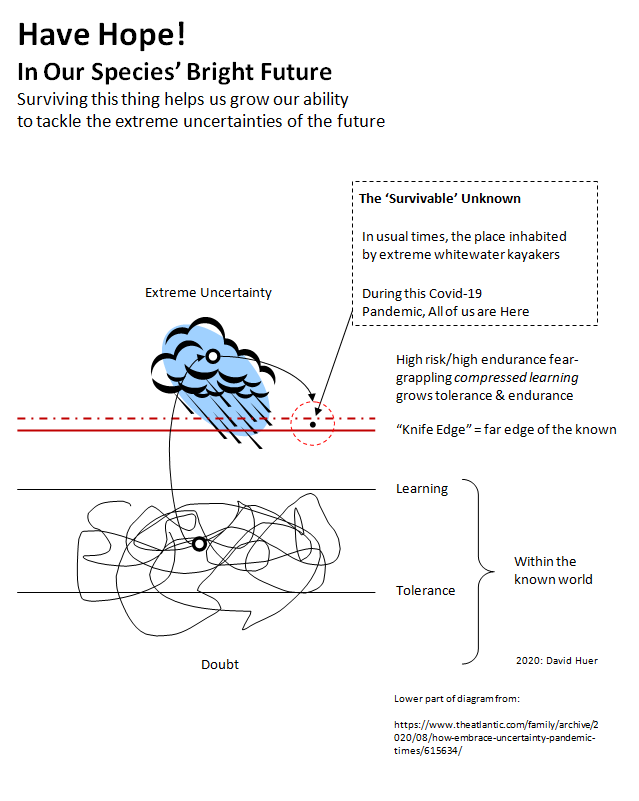![]() New possibilities for space commerce
New possibilities for space commerce
Many small steps.
Inspired by Robert Zubrin and Stephen Petranek.
Project Video: https://www.youtube.com/watch?v=nff2CiAydTo
Territory ideas: Animations start at 8:12
1-Page Summary: https://davehuer.com/plan-b-summary/
Before starting OrbMB, I’d separately started exploring ideas to grow our capacity to become a fully-functioning, off-Earth society: ways to tackle the wicked problem of building “secure, resilient, rapidly-evolving distributed systems at scale.”*
We live in a new age, with enabling technologies and possibilities. This project proposes ways to use property rights and commercial law to de-risk the uncertainties, to bootstrap the trading webs we need to grow ourselves to sister worlds. The goal being to spark new thinking about what we want, as we transition to systems of sustainable commerce. Here and out there: #spacecommerce
Many thanks to all contributors. Special thanks to cg artists Evgenia Tikpapanidou & Guy Brochard and voice artist Marek Montoya for animatedly bringing the project to life.
Inspirations:
(2014) The Mars Underground: https://www.youtube.com/watch?v=tcTZvNLL0-w
(2016) Stephan Petranek: https://www.youtube.com/watch?v=t9c7aheZxls
*(2018) N.Forsgren, J.Humble, G.Kim: Accelerate, p.4: (Amazon book link)


